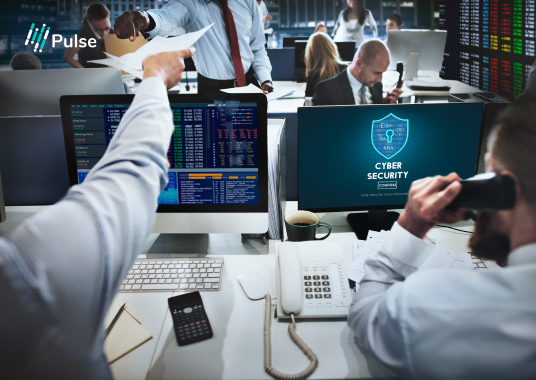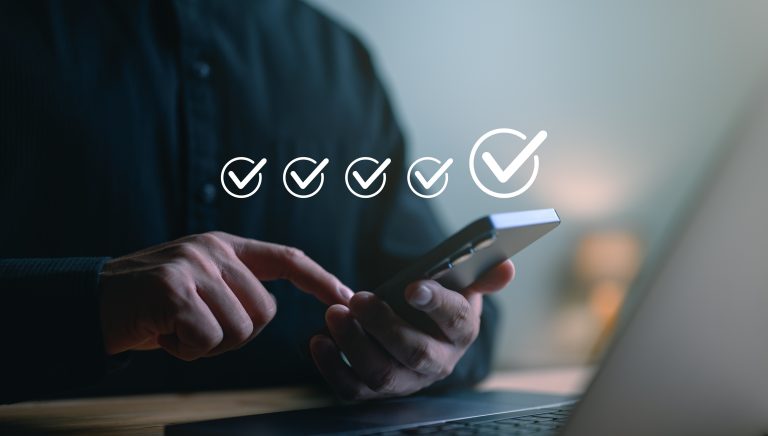The digital transformation of the accounting profession has fundamentally reshaped how financial professionals operate now. As more accountants and SMEs move towards cloud-based and AI-enabled financial tools, cybersecurity becomes a critical factor in selecting the right tool. Sensitive financial data is a prime target for cybersecurity threats. A breach of data not only can lead to regulatory fines and reputational damage, but it can also incur operational disruption costs and loss of revenue.
In fact, half of UK businesses experienced cyber-attacks in 2024, with 41% of SMEs had average losses of £4,000 for each incident. For accounting firms managing sensitive financial data, these statistics translate into existential risk. It demands immediate attention when selecting software for accountants.
The regulatory landscape creates greater concern. In addition to the reputational and financial damage, non-compliance with UK GDPR and the Data Protection Act 2018 can lead to serious sanctions by the Information Commissioner’s Office (ICO). It is important to note that accounting firms, as custodians of sensitive financial and personal data, are legally obliged to protect that information.
A data breach results in more than regulatory fines, it undermines client confidence and forces unnecessary and costly recovery efforts, making secure software selection a compliance decision.
Why Current Threats Target Small Accounting Firms
Prime Targets with Valuable Data
Small accounting firms have emerged as a desirable target for cybercriminals as they have a wealth of financial information and usually have limited cybersecurity resources. These practices hold exactly the type of information that sells for high prices on the dark web.
Evolution of AI-Driven Attack
AI has profoundly changed the cyber threat landscape. Generative AI is now being leveraged by cybercriminals to develop authentic-looking phishing emails that can bypass conventional means of detection. AI malware is able to even learn detection methods and can adapt to its behaviour, providing even more persistence. Meanwhile, automated bots scan companies’ online footprints to launch precise and personalised spear-phishing attacks.
These threats are now the top cybersecurity concern for UK SMEs. It includes deepfakes used for impersonation fraud and AI chatbots engaging in real-time social engineering schemes.
Essential Security Standards for Accounting Software
Regulatory Compliance Requirements
Accounting software in the UK must comply with the Data Protection Act 2018 and UK GDPR to ensure secure handling of financial and personal data. Tools connected to Making Tax Digital (MTD) must also be HMRC-approved, ensuring data integrity and secure transmission when managing private tax information.
Technical Security Foundations
Encryption and Data Protection: Advanced 256-bit encryption represents the minimum acceptable standard for modern accounting software. Data must be protected end-to-end, in transit and at rest, with SSL/TLS protocols for the secure channel. With all of these layers, the captured data will be completely useless in an attempt at malicious exploitation.
Access Control Systems: Effective platforms should include role-based access controls (RBAC) to provide permission based on job responsibilities. Multi-factor authentication (MFA), an added level of authentication to get access, stops unauthorised users from accessing stolen credentials.
Infrastructure Security Requirements
Secure Hosting Standards: Independent security audits, particularly ISO/IEC 27001 certification, demonstrate vendor commitment to maintaining high security standards. Clear incident response protocols ensure vendors can effectively notify clients and respond to cyber-attacks. Understanding these procedures enables accounting firms to maintain appropriate preparedness for potential security incidents.
Operational Security Features
Automatic Security Updates: Security updates must be deployed automatically to address evolving threats as soon as they are available and without requiring human intervention. Delays in patching known Vulnerabilities leave systems vulnerable and easy to exploit.
Backup and Recovery Systems: Trustworthy software should have automated backups, a full disaster recovery plan, and a tested mechanism for restoring data. These frameworks are essential to reliably protect against ransomware or interruptions to the operations and integrity of your data.
Implementation Strategy for Secure Software for Accountants
Evaluation Checklist: When assessing software for accountants, firms should weigh it against verified technical documentation and independent security audits, not just vendor claims. Compliance needs to be verified for UK GDPR, the Data Protection Act 2018, and HMRC, where relevant, with clear documentation and updates.
Risk Assessment Integration: Cybersecurity risks should be considered with operational benefits and costs for complete risk management. Security assurance is an important ongoing activity to ensure that both technical defences and operational procedures are effective and compliant.
Smart, Secure, and Intuitive Solutions
Companies are increasingly turning to solutions that not only provide strong cybersecurity but also financial analysis. Pulse is one such AI-driven SaaS company with solutions tailored to accountants. They provide a safe and easy-to-use ecosystem for managing financial wellness.
It takes safety precautions such as multi-factor authentication and runs on ISO/IEC 27001-certified infrastructure. It ensures the financial information is treated with the utmost standards of information security. In addition, Pulse’s real-time dashboards enable secure and hassle-free financial data analysis in real-time. To learn more, book a demo today.
Conclusion
With the increasing cyber threats, UK accounting practices demand immediate and comprehensive action in software selection processes. The investment in secure software and solutions for accountants represent essential business infrastructure rather than optional enhancement.
Firms that recognise cybersecurity as a core business requirement rather than a technical consideration will maintain competitive advantages. At the same time, they can protect both their operations and client relationships in an increasingly dangerous digital environment.

















